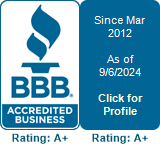An assessment is the formal recording of a taxpayer's tax liability. However, this simple definition fails to alert you to the vast division between not owing and owing the IRS, which will bring a myriad of procedural rules to follow.
Once the IRS places your debt into their system it is an "assessment" and they can collect. Prior to that, they cannot collect. You can "self-assess" this debt by filing a return. If you fail to file a return, the IRS can gather all the evidence (from your Wage & Income Transcripts) they possess about you and file the return for you. This is called a "Substitute for Return" or SFR.
You can prepare a return without computing the tax and request that the IRS compute and assess the tax. They will send you Notice CP51B if you are due a refund. If you owe they will send either a Notice CP51A or a Notice CP51C when the process is finished.
All Statutes of Limitations begin only when the tax is assessed, not before.
So, prior to an assessment there are the normal procedures: Filing returns, Return Errors, Audits, Unfiled Returns, Appeals, & Tax Court each of which carries its own strategies and tactics.
After assessment are the procedures of Collection, Appeals, Offer in Compromise, Bankruptcy, US District Court, Penalty Abatement, among other things.
Each of these assessments and procedures are also found in the area of Business Tax, with the huge added wrinkle of the Trust Fund Recovery Penalty.
Then, all of this is repeated with the Colorado Department of Revenue.
So, the strategies & tactics to fight the IRS depends on what procedure is being used & how well-prepared you are.
Click on the links above for advice on each of these topics!
J. David Hopkins, JD, LLM






